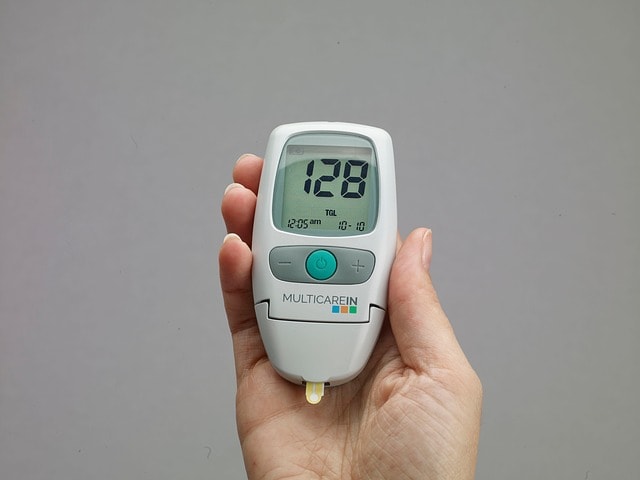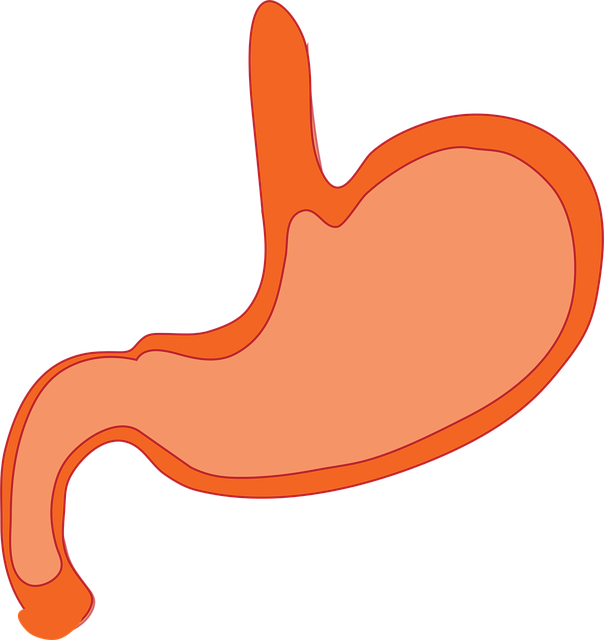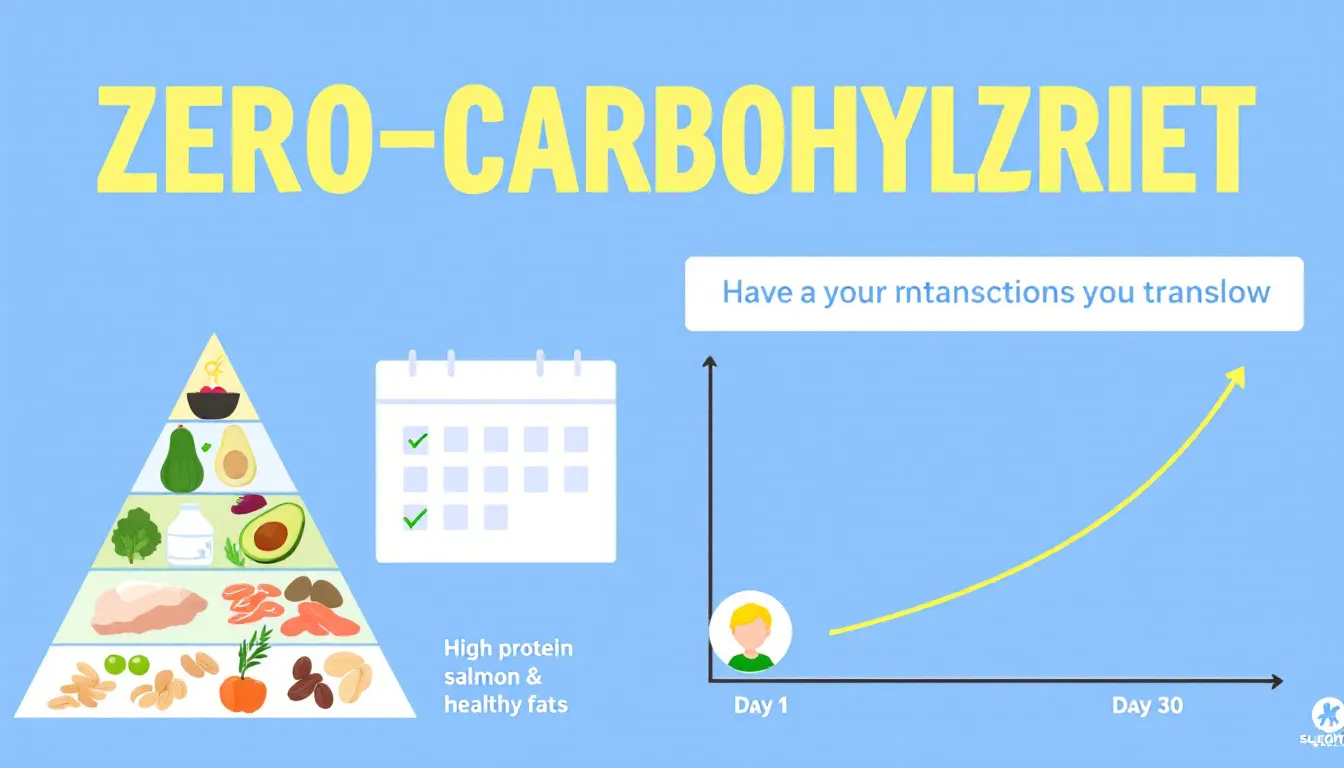The Ultimate Guide to a Diet with No Carbs: Benefits and Challenges
Introduction to Zero-Carbohydrate Nutrition and the Ketogenic Diet
The keto diet represents one of the most radical dietary approaches available, eliminating all forms of carbohydrates including sugars, starches, and fiber to create a nutritional framework based exclusively on proteins and fats. This extreme elimination differs significantly from low-carbohydrate diets that typically allow 20-50 grams of carbohydrates daily, instead pursuing complete carbohydrate restriction that forces the body into alternative metabolic pathways for energy production.
The concept of zero-carbohydrate eating challenges fundamental nutritional assumptions about macronutrient requirements and optimal human metabolism. While carbohydrates are traditionally considered essential macronutrients, emerging research and historical evidence suggest that humans can survive and potentially thrive without dietary carbohydrate intake, relying instead on gluconeogenesis and ketone production to meet the body’s glucose and energy requirements. Other dietary approaches, such as the Mediterranean diet and low carb diets, emphasize a balanced diet and sustainable eating habits, focusing on integrating a variety of nutrient-rich foods for long-term health.
This dietary approach draws inspiration from historical examples including Arctic populations who subsisted primarily on animal foods, as well as modern carnivore diet practitioners who report significant health improvements through complete plant food elimination. However, the scientific understanding of long-term zero-carbohydrate nutrition remains limited, with most research focusing on cutting carbs rather than zero-carbohydrate interventions.
The decision to pursue zero-carbohydrate nutrition requires careful consideration of potential benefits and risks, as this approach represents a significant departure from conventional dietary wisdom and may not be appropriate for all individuals. It is important to ensure that all the necessary nutrients are included in any dietary approach to maintain overall health. Understanding the physiological adaptations, practical implementation challenges, and long-term implications, including the role of healthy fats, becomes crucial for anyone considering this extreme dietary modification.

Understanding Carbohydrate Physiology and Elimination
The Role of Carbohydrates in Human Metabolism
Carbohydrates serve multiple functions in human physiology, acting as the body’s preferred fuel source for high-intensity activities while providing glucose for brain function and supporting various metabolic processes. Under normal dietary conditions, carbohydrates and added sugar re broken down into glucose, which enters the bloodstream and either provides immediate energy or gets stored as glycogen in liver and muscle tissues for future use.
Complex carbs, found in foods like oats, bread, and rice, are made up of longer chains of sugar molecules and are digested slowly, providing a steady energy source and fiber. In contrast, refined carbs such as sugar and white flour are rapidly digested and can cause spikes in blood sugar. Whole grains are a key source of complex carbs, making them a beneficial choice for a weight loss diet offering essential fibers, vitamins, and minerals that support overall health and help prevent nutrient deficiencies.
The brain typically consumes approximately 120 grams of glucose daily under standard conditions, representing roughly 20% of total daily energy expenditure despite accounting for only 2% of body weight. This glucose dependency has led to the classification of carbohydrates as essential nutrients, though the body possesses remarkable adaptive mechanisms that can meet these glucose requirements through alternative pathways when dietary carbohydrates and carb intake re unavailable.
Insulin regulation represents another crucial aspect of carbohydrate metabolism, with dietary carbohydrates triggering insulin release to facilitate glucose uptake by cells and maintain blood sugar homeostasis. The elimination of dietary carbohydrates dramatically reduces insulin requirements, potentially providing benefits for insulin sensitivity and metabolic health, particularly in individuals with insulin resistance or type 2 diabetes. However, removing carbohydrates from the diet, particularly with very low carb diets, can sometimes result in low blood sugar, especially for people with diabetes or those taking glucose-lowering medications, leading to symptoms such as weakness, shakiness, sweating, and dizziness.
The complete removal of dietary carbohydrates forces the body to activate gluconeogenesis, the metabolic process by which glucose is synthesized from non-carbohydrate precursors including amino acids and glycerol. This adaptation allows the body to maintain necessary glucose levels for brain function and other glucose-dependent processes without requiring dietary carbohydrate intake, contrasting with low fat diets .

Physiological Adaptations to Carbohydrate Elimination
The transition to zero-carbohydrate nutrition triggers profound physiological adaptations as the body shifts from glucose-dependent metabolism to alternative energy pathways. The most significant adaptation involves increased ketone production in the liver, as fatty acids are broken down to create ketone bodies that can serve as an alternative fuel source for the brain and other tissues, especially when limiting carbs .
Ketosis typically develops within 2-7 days of carbohydrate elimination, with blood ketone levels rising to 0.5-3.0 millimolar as the liver increases ketone production to compensate for reduced glucose availability. This metabolic state, known as nutritional ketosis, differs significantly from diabetic ketoacidosis and represents a normal physiological adaptation to carbohydrate restriction rather than a pathological condition. During the initial adaptation to ketosis, particularly when one chooses to follow a low carb approach some individuals experience symptoms collectively known as keto flu, which can include fatigue, dizziness, nausea, and irritability.
Gluconeogenesis becomes increasingly important during carbohydrate elimination, with the liver and kidneys producing glucose from amino acids, lactate, and glycerol to maintain blood glucose levels within normal ranges. This process typically produces 150-200 grams of glucose daily, sufficient to meet the needs of glucose-dependent tissues while allowing for continued brain and organ function, highlighting the importance of a healthy diet . For those following low-carb or ketogenic diets, tracking net carbs and total carbs is crucial, as net carbs are calculated by subtracting fiber and certain sugar alcohols from total carbs to determine the digestible carbohydrate content. Understanding the role of sugar alcohols in this calculation helps manage carbohydrate intake and calorie consumption more effectively.
The elimination of dietary fiber through zero-carbohydrate eating creates significant changes in digestive function and gut microbiome composition. While fiber is traditionally considered essential for digestive health, some individuals report improved digestive symptoms on zero-carbohydrate diets, which may help some people lose weight though the long-term implications of complete fiber elimination remain unclear and potentially concerning for gut health.
Electrolyte balance undergoes significant changes during carbohydrate elimination, as reduced insulin levels lead to increased sodium and water excretion by the kidneys. This adaptation can result in rapid initial weight loss due to glycogen and water depletion, raising concerns about weight loss maintenance but also requires careful attention to sodium, potassium, and magnesium intake to prevent electrolyte imbalances and associated symptoms.

Potential Benefits of Zero-Carbohydrate Nutrition
Weight Loss and Body Composition Improvements
Zero-carbohydrate diets can produce rapid and significant weight loss through multiple mechanisms including glycogen depletion, water loss, appetite suppression, and enhanced fat oxidation. Eating low carb encourages the body to burn fat, including stored fat, as its primary energy source once carbohydrate reserves are depleted. The elimination of carbohydrates, as low carb diet focuses on doing, removes the primary stimulus for insulin secretion, creating hormonal conditions that favor lipolysis and fat mobilization while reducing fat storage signals.
The appetite suppression effects of zero-carbohydrate eating often lead to spontaneous calorie reduction without conscious effort, as protein and fat consumption typically provide greater satiety than carbohydrate-rich foods. This natural appetite regulation can make long-term weight management easier for individuals who struggle with hunger and cravings on higher-carbohydrate diets.
Ketone production during zero-carbohydrate eating provides appetite-suppressing effects that extend beyond the satiety provided by dietary protein and fat. Beta-hydroxybutyrate, the primary ketone body produced during carbohydrate restriction, can directly influence appetite control centers in the brain while providing an alternative fuel source that reduces cravings for carbohydrate-rich foods.
The protein requirements typically increase on zero-carbohydrate diets to support gluconeogenesis and maintain muscle mass, which can provide additional metabolic benefits through increased thermic effect of food and preserved lean body mass during weight loss. The higher protein intake often associated with zero-carbohydrate eating can support muscle preservation and potentially enhance fat loss ratios, suggesting that a carb diet may have different impact .
Body composition improvements often extend beyond simple weight loss to include reductions in visceral fat and improvements in waist circumference measurements. The hormonal environment created by carbohydrate elimination, particularly reduced insulin levels and increased growth hormone production, can support preferential fat loss while preserving muscle mass when adequate protein intake is maintained, highlighting the amount of carbs that might be necessary .

Blood Sugar and Insulin Regulation
The most dramatic and immediate benefit of zero-carbohydrate nutrition involves blood sugar stabilization and insulin sensitivity improvements, particularly beneficial for individuals with type 2 diabetes, prediabetes, or metabolic syndrome. The elimination of dietary carbohydrates removes the primary stimulus for post-meal blood sugar spikes, creating remarkably stable glucose levels throughout the day, which is often a goal for weight loss .
Diabetes UK recognizes that eating low carb can offer short-term benefits for overweight adults with type 2 diabetes, such as improved blood sugar control and reduced medication needs, though they advise caution for children and those with type 1 diabetes due to limited long-term evidence and potential risks.
Insulin requirements decrease substantially on zero-carbohydrate diets, often allowing individuals with type 2 diabetes to reduce or eliminate diabetes medications under medical supervision. This reduction in insulin exposure can improve insulin sensitivity over time while reducing the metabolic stress associated with frequent insulin spikes and blood sugar fluctuations.
The stable blood sugar levels achieved through carbohydrate elimination can provide significant improvements in energy stability and mental clarity, eliminating the energy crashes and cognitive fog associated with blood sugar fluctuations. Many practitioners report enhanced focus, improved mood stability, and elimination of mid-afternoon energy dips commonly experienced on higher-carbohydrate diets.
Hemoglobin A1C levels, which reflect average blood sugar over 2-3 months, often show dramatic improvements on zero-carbohydrate diets, with some individuals achieving normal ranges within months of dietary implementation. These improvements can occur rapidly and may exceed those achieved through pharmaceutical interventions alone.
The reduction in glycemic variability associated with zero-carbohydrate eating may provide cardiovascular and neurological benefits beyond simple blood sugar control, as glucose fluctuations have been associated with oxidative stress, inflammation, and endothelial dysfunction. The metabolic stability achieved through carbohydrate elimination can support overall health improvements that extend far beyond diabetes management.

Inflammation and Autoimmune Benefits
Many individuals report significant reductions in inflammatory symptoms and autoimmune conditions when following zero-carbohydrate diets, though the mechanisms underlying these improvements remain incompletely understood. The elimination of potentially inflammatory plant compounds, improved insulin sensitivity, and ketone production may all contribute to anti-inflammatory effects.
The removal of dietary lectins, oxalates, and other plant defense compounds through zero-carbohydrate eating may reduce inflammatory responses in susceptible individuals, particularly those with autoimmune conditions or food sensitivities. While these compounds are generally well-tolerated by healthy individuals, some people may experience inflammatory reactions that improve with complete plant food elimination.
Ketone bodies, particularly beta-hydroxybutyrate, possess anti-inflammatory properties that can reduce inflammatory markers and oxidative stress throughout the body. The sustained ketosis achieved through zero-carbohydrate eating may provide ongoing anti-inflammatory benefits that extend beyond the effects of carbohydrate elimination alone.
Joint pain and arthritis symptoms often improve on zero-carbohydrate diets, potentially due to reduced inflammation, weight loss, and elimination of inflammatory food components. Many practitioners report significant reductions in joint stiffness, pain, and swelling within weeks of dietary implementation, though individual responses vary considerably.
Digestive inflammation and symptoms associated with conditions such as irritable bowel syndrome, Crohn's disease, and ulcerative colitis sometimes improve dramatically with zero-carbohydrate eating, though this response is not universal and may depend on individual factors and underlying disease mechanisms. The elimination of fermentable carbohydrates and plant fibers may reduce bacterial overgrowth and inflammatory responses in the digestive tract.

Mental Health and Cognitive Benefits
The neurological benefits of zero-carbohydrate nutrition extend beyond simple blood sugar stabilization to include potential improvements in mood disorders, cognitive function, and neurological conditions. The brain's ability to utilize ketones as an alternative fuel source may provide neuroprotective benefits and improved mental performance for some individuals.
Depression and anxiety symptoms often improve on zero-carbohydrate diets, potentially due to stable blood sugar levels, improved neurotransmitter function, and reduced inflammation. The elimination of blood sugar fluctuations can provide mood stability, while ketone production may directly influence neurotransmitter synthesis and brain function.
Cognitive clarity and mental focus frequently improve during zero-carbohydrate eating, with many practitioners reporting enhanced concentration, improved memory, and reduced brain fog. These cognitive benefits may result from stable energy supply to the brain through ketones and glucose produced via gluconeogenesis, eliminating the cognitive impairments associated with blood sugar fluctuations.
Sleep quality improvements are commonly reported on zero-carbohydrate diets, potentially due to stable blood sugar levels throughout the night and reduced inflammatory burden. Better sleep quality can create positive feedback loops that support mental health, cognitive function, and overall well-being.
Some individuals with neurological conditions including epilepsy, migraines, and neurodegenerative diseases report improvements on zero-carbohydrate diets, though these applications require medical supervision and may not be appropriate for all individuals. The neuroprotective effects of ketones and metabolic improvements may provide therapeutic benefits for certain neurological conditions.
Significant Challenges and Risks
Nutritional Deficiency Concerns
The elimination of all plant foods through zero-carbohydrate eating creates substantial risks for nutritional deficiencies, particularly in vitamins and minerals typically obtained from fruits, vegetables, and grains. Vitamin C deficiency represents a primary concern, as animal foods contain minimal vitamin C compared to plant sources, potentially leading to scurvy if adequate precautions are not taken.
B-vitamin deficiencies, particularly folate and vitamin B6, may develop over time on zero-carbohydrate diets, as many B-vitamins are abundant in plant foods but less available in animal products. While some B-vitamins can be obtained from organ meats and other animal sources, the restricted food variety may make it challenging to meet all B-vitamin requirements without supplementation.
Fiber elimination through zero-carbohydrate eating removes important prebiotics that support beneficial gut bacteria and digestive health. While some individuals report improved digestive symptoms, the long-term consequences of complete fiber elimination remain concerning, particularly regarding gut microbiome diversity and colon health.
Mineral deficiencies including magnesium, potassium, and certain trace minerals may develop due to the restricted food variety and elimination of plant-based mineral sources. While animal foods provide many essential minerals, the limited dietary diversity may make it challenging to meet all mineral requirements without careful planning or supplementation.
Antioxidant intake typically decreases substantially on zero-carbohydrate diets, as many powerful antioxidants are found primarily in plant foods. While the body produces endogenous antioxidants and some are available in animal products, the elimination of dietary antioxidants may increase oxidative stress and long-term disease risk for some individuals.

Digestive and Gastrointestinal Issues
The transition to zero-carbohydrate eating often triggers significant digestive changes that can be challenging to manage, particularly during the initial adaptation period. Constipation represents one of the most common issues, as the elimination of fiber reduces stool bulk and may slow intestinal transit time, requiring careful attention to hydration and electrolyte balance.
Digestive enzyme production may require adaptation to the dramatically increased protein and fat intake typical of zero-carbohydrate diets. Some individuals experience digestive discomfort, bloating, or diarrhea during the transition period as the body adjusts to processing much higher amounts of animal proteins and fats.
Gallbladder function becomes crucial on high-fat zero-carbohydrate diets, as the increased fat intake requires adequate bile production and flow to prevent gallstone formation or digestive complications. Individuals with existing gallbladder issues may need medical supervision when implementing zero-carbohydrate eating.
The gut microbiome undergoes dramatic changes when all plant foods are eliminated, with potential reductions in beneficial bacteria that depend on fiber and plant compounds for survival. These microbiome changes may have long-term health implications that are not yet fully understood, particularly regarding immune function and digestive health.
SIBO (Small Intestinal Bacterial Overgrowth) and other digestive conditions may initially improve with carbohydrate elimination but could potentially worsen over time due to reduced microbiome diversity and elimination of beneficial plant compounds that support gut health. The long-term consequences of these digestive changes remain largely unknown.
Social and Practical Challenges
Zero-carbohydrate eating creates significant social challenges due to its extreme nature and deviation from conventional dietary patterns. Restaurant dining becomes extremely difficult for those following a low carb eating plan , as most menu items contain some carbohydrates, and food preparation options are severely limited when traveling or eating away from home.
The restrictive nature of zero-carbohydrate eating can strain social relationships and family dynamics, particularly around food-centered social activities and cultural traditions that involve carbohydrate-rich foods. Family meals, holidays, and social gatherings may become sources of stress and isolation for individuals following this extreme dietary approach.
Food variety and culinary enjoyment are severely limited on zero-carbohydrate diets, potentially leading to food boredom and reduced quality of life for individuals who derive pleasure from diverse culinary experiences. The psychological impact of such dietary restriction can be significant and may not be sustainable long-term for many people.
Economic considerations may make zero-carbohydrate eating expensive, as high-quality animal products typically cost more than plant-based foods, and the elimination of affordable carbohydrate staples can significantly increase grocery expenses. Organ meats and specialty animal products recommended for nutritional completeness may be expensive and difficult to source.
Meal planning and preparation become extremely challenging when all plant foods are eliminated, requiring significant time investment and culinary creativity to maintain dietary variety within such narrow constraints. The need for careful nutritional planning and potential supplementation adds complexity and cost to dietary implementation.
Potential Long-Term Health Risks
The long-term health effects of zero-carbohydrate eating remain largely unknown due to limited research on extended periods of complete carbohydrate elimination. While short-term studies show potential benefits, the absence of long-term data creates uncertainty about potential risks that may develop over years or decades of such extreme dietary restriction.
Cardiovascular health implications of zero-carbohydrate eating remain controversial, as the typically high saturated fat intake may increase cardiovascular risk factors in some individuals, though others may experience improvements in lipid profiles and cardiovascular markers. Individual responses vary significantly, making personalized monitoring essential.
Kidney function may be stressed by the high protein intake typical of zero-carbohydrate diets, particularly in individuals with existing kidney problems. The increased protein metabolism creates additional nitrogen waste that must be processed by the kidneys, potentially accelerating kidney function decline in susceptible individuals.
Bone health concerns arise from the elimination of plant foods that provide alkalizing minerals and compounds that support bone density. The typically acid-forming nature of animal-only diets may increase calcium excretion and potentially compromise bone health over time, though this remains controversial and requires further research.
Cancer risk implications remain unclear, as the elimination of protective plant compounds and increased consumption of processed meats may increase certain cancer risks, while improved metabolic health and weight loss may be protective. The complex interactions between these factors make risk assessment challenging without long-term studies.

Implementation Guidelines and Practical Considerations
Planning Your Zero-Carbohydrate Transition
Successful implementation of zero-carbohydrate eating requires careful planning and gradual transition to minimize side effects and ensure nutritional adequacy. Most experts recommend transitioning over 1-2 weeks rather than making abrupt changes, allowing the body to adapt gradually to the dramatic macronutrient shift and metabolic changes.
Medical supervision becomes essential before implementing zero-carbohydrate eating, particularly for individuals with existing health conditions, diabetes, or those taking medications that may require adjustment. Blood work including comprehensive metabolic panels, lipid profiles, and nutrient status should be evaluated before and during dietary implementation.
Electrolyte supplementation typically becomes necessary during the transition period and may be required long-term, as the elimination of carbohydrates and associated insulin reduction leads to increased sodium and water excretion. Adequate sodium, potassium, and magnesium intake becomes crucial for preventing symptoms such as fatigue, headaches, and muscle cramps.
Hydration requirements increase substantially on zero-carbohydrate diets due to the diuretic effects of carbohydrate elimination and ketosis. Adequate water intake becomes essential for supporting kidney function, preventing dehydration, and maintaining electrolyte balance during the metabolic adaptation period.
Digestive enzyme supplementation may be beneficial during the transition period to support the digestion of dramatically increased protein and fat intake. Betaine HCl, lipase, and protease supplements can help prevent digestive discomfort during the adaptation phase while the body adjusts its enzyme production.

Food Selection and Meal Planning
Zero-carbohydrate food selection focuses exclusively on animal products, with emphasis on whole, unprocessed options that provide optimal nutritional density. High-quality muscle meats, organ meats, fish, eggs, and animal fats form the foundation of zero-carbohydrate nutrition, with careful attention to sourcing and preparation methods. For those not following a strict zero-carb approach, a low carb meal plan or meal plan typically includes careful tracking of food intake and emphasizes non starchy vegetables as a core component to support balanced nutrition and manage carbohydrate limits.
Organ meat consumption becomes crucial for nutritional completeness on zero-carbohydrate diets, as organs provide concentrations of vitamins and minerals that may be lacking in muscle meats alone. Liver, kidney, heart, and brain (where available) provide essential nutrients including vitamin A, B-vitamins, iron, and other micronutrients essential for optimal health.
Fatty fish and seafood provide important omega-3 fatty acids and minerals that may be challenging to obtain from terrestrial animal products alone. Regular consumption of salmon, sardines, mackerel, and shellfish can help ensure adequate intake of essential fatty acids and trace minerals such as iodine and selenium.
Egg consumption provides high-quality protein and important nutrients including choline, which is essential for brain health and may be challenging to obtain in adequate amounts from other animal sources. Whole eggs from pasture-raised chickens offer optimal nutritional density and should be included regularly in zero-carbohydrate meal planning.
Animal fat selection should emphasize naturally occurring fats such as tallow, lard, and butter rather than processed oils, as these traditional fats provide stable energy sources and fat-soluble vitamins. The quality of animal fats depends significantly on the diet and living conditions of the source animals, making sourcing considerations important.
Monitoring and Adjustments
Regular health monitoring becomes essential when following zero-carbohydrate diets due to the dramatic nature of the dietary change and potential for nutritional deficiencies or health complications. Comprehensive blood work should be conducted every 3-6 months to assess metabolic markers, nutrient status, and overall health indicators.
Ketone monitoring can provide valuable feedback about metabolic adaptation and dietary compliance, with blood ketone levels typically ranging from 0.5-3.0 millimolar during successful carbohydrate elimination. Urine ketone strips offer a less expensive monitoring option, though blood testing provides more accurate measurements.
Blood glucose monitoring remains important even on zero-carbohydrate diets, as some individuals may experience elevated fasting glucose due to physiological insulin resistance that develops as an adaptation to carbohydrate restriction. This dawn phenomenon is typically benign but should be monitored to ensure it doesn't indicate underlying metabolic dysfunction.
Lipid profile monitoring becomes crucial due to the typically high saturated fat intake on zero-carbohydrate diets, as individual responses to increased saturated fat consumption vary significantly. Some individuals experience improved lipid profiles while others may see increases in LDL cholesterol that require dietary modifications or medical intervention.
Nutrient status testing should include vitamin B12, folate, vitamin D, iron, and other nutrients that may be affected by the restricted food variety. Regular monitoring allows for early detection of deficiencies and appropriate supplementation or dietary adjustments to maintain optimal nutritional status.
Supplementation Strategies for Zero-Carbohydrate Eating
Essential Supplements for Nutritional Completeness
Vitamin C supplementation becomes crucial on zero-carbohydrate diets due to the minimal vitamin C content in animal foods and the risk of scurvy with prolonged deficiency. While some proponents argue that vitamin C requirements decrease on zero-carbohydrate diets due to reduced glucose competition for cellular uptake, most experts recommend supplementation to ensure adequate intake.
B-vitamin supplementation may be necessary to prevent deficiencies, particularly folate, which is primarily found in plant foods. A high-quality B-complex supplement can help ensure adequate intake of all B-vitamins, though monitoring blood levels remains important to assess individual needs and supplement effectiveness.
Magnesium supplementation often becomes necessary on zero-carbohydrate diets due to increased excretion during the initial adaptation period and potentially limited dietary sources. Magnesium glycinate or magnesium malate are typically well-absorbed forms that can help prevent symptoms such as muscle cramps, fatigue, and sleep disturbances.
Vitamin D monitoring and supplementation remain important on zero-carbohydrate diets, as animal foods provide limited vitamin D and sun exposure requirements remain unchanged. Adequate vitamin D status supports bone health, immune function, and overall well-being regardless of dietary approach.
Omega-3 fatty acid supplementation may be beneficial if adequate fatty fish consumption is not maintained, as the omega-3 content of terrestrial animal products depends significantly on the animals' diet and may be insufficient for optimal health. High-quality fish oil or algae-based supplements can help ensure adequate EPA and DHA intake.

Electrolyte Management and Hydration
Sodium supplementation typically becomes necessary on zero-carbohydrate diets due to increased sodium excretion when insulin levels decrease. Adding 1-2 teaspoons of high-quality salt to food or water throughout the day can help prevent symptoms such as fatigue, headaches, and muscle cramps commonly experienced during carbohydrate elimination.
Potassium requirements may increase on zero-carbohydrate diets, though adequate intake can be challenging to achieve through supplementation due to regulatory limits on potassium content in supplements. Food sources such as salmon, sardines, and other potassium-rich animal products should be emphasized, with medical supervision for higher-dose potassium supplementation if needed.
Magnesium needs often increase during the transition to zero-carbohydrate eating and may remain elevated long-term due to the stress of metabolic adaptation and potential dietary limitations. Starting with 200-400mg of elemental magnesium daily and adjusting based on symptoms and blood levels can help optimize magnesium status.
Hydration strategies must account for the increased fluid turnover associated with carbohydrate elimination and potential ketosis. Drinking to thirst while ensuring adequate electrolyte intake typically provides appropriate hydration, though some individuals may benefit from more structured hydration protocols during the adaptation period.
Electrolyte timing can influence absorption and symptom management, with many practitioners finding benefit from consuming electrolytes throughout the day rather than in large single doses. Adding electrolytes to water or consuming them with meals can help maintain steady levels and prevent fluctuations that contribute to symptoms.

Special Considerations for Different Populations
Athletic Performance and Exercise Considerations
Athletic performance on zero-carbohydrate diets varies significantly among individuals and depends heavily on the type, intensity, and duration of exercise performed. Endurance athletes may experience improved fat oxidation and metabolic efficiency after adaptation, while high-intensity performance typically suffers initially due to reduced glycogen availability.
The adaptation period for athletic performance on zero-carbohydrate diets can extend 6-12 weeks or longer, during which performance may be significantly impaired as the body learns to efficiently utilize fat and ketones for fuel. Athletes considering this approach must plan for reduced performance during the adaptation period and may need to modify training intensity and volume.
Strength training and resistance exercise can typically be maintained on zero-carbohydrate diets with adequate protein intake, though some individuals may experience reduced power output and workout capacity. The high protein intake typical of zero-carbohydrate eating can support muscle protein synthesis and recovery when total calories and essential amino acids are adequate.
Recovery considerations become particularly important for athletes on zero-carbohydrate diets, as the elimination of carbohydrates removes the traditional post-workout glycogen replenishment strategy. Adequate protein and fat intake, along with proper electrolyte management, becomes crucial for supporting recovery and adaptation.
Competition timing requires careful consideration for athletes following zero-carbohydrate diets, as performance may be suboptimal during the adaptation period and individual responses to competition stress may differ. Some athletes choose to temporarily reintroduce carbohydrates around important competitions while others remain committed to zero-carbohydrate eating year-round.
Women's Health and Hormonal Considerations
Women may experience unique challenges on zero-carbohydrate diets related to hormonal fluctuations and reproductive health. Some women report menstrual irregularities or amenorrhea when following very low-carbohydrate diets, potentially due to the stress of metabolic adaptation or insufficient caloric intake affecting reproductive hormones.
Thyroid function may be affected by zero-carbohydrate eating in some women, with potential reductions in T3 (active thyroid hormone) production that can affect metabolism, energy levels, and overall well-being. Regular monitoring of thyroid function becomes important for women following zero-carbohydrate diets, particularly those with existing thyroid issues.
Pregnancy and breastfeeding represent contraindications for zero-carbohydrate eating due to increased nutritional needs and potential risks to fetal development and milk production. Women planning pregnancy or currently pregnant should avoid zero-carbohydrate diets and work with healthcare providers to ensure adequate nutrition for maternal and fetal health.
Bone health considerations may be particularly important for postmenopausal women following zero-carbohydrate diets, as the elimination of plant foods removes important alkalizing compounds and the high protein intake may increase calcium excretion. Regular bone density monitoring and adequate calcium and vitamin D intake become crucial.
Stress response and adrenal function may be affected differently in women on zero-carbohydrate diets, potentially due to hormonal differences and greater sensitivity to dietary stress. Women may need to pay particular attention to stress management, sleep quality, and overall well-being when implementing zero-carbohydrate eating.
Medical Conditions and Contraindications
Diabetes management on zero-carbohydrate diets requires careful medical supervision, as blood sugar control may improve dramatically and diabetes medications may need significant adjustments or discontinuation. Individuals with type 1 diabetes face particular challenges and risks with zero-carbohydrate eating and should only attempt this approach under expert medical guidance.
Kidney disease represents a significant contraindication for zero-carbohydrate diets due to the typically high protein intake that may accelerate kidney function decline. Individuals with any degree of kidney dysfunction should avoid zero-carbohydrate eating or only attempt it under careful nephrology supervision with modified protein intake.
Gallbladder disease or history of gallstones may be exacerbated by the high fat intake typical of zero-carbohydrate diets, potentially triggering gallbladder attacks or complications. Individuals with gallbladder issues should consult with healthcare providers before implementing high-fat dietary approaches.
Eating disorders represent important contraindications for zero-carbohydrate diets due to the extreme restrictive nature of the approach and potential for triggering disordered eating patterns. The rigid food rules and elimination of entire food groups may be particularly problematic for individuals with history of restrictive eating disorders.
Cardiovascular disease considerations vary among individuals, as some may benefit from weight loss and metabolic improvements while others may be negatively affected by increased saturated fat intake. Comprehensive cardiovascular risk assessment and monitoring become essential for individuals with existing heart disease considering zero-carbohydrate eating.

Long-Term Sustainability and Exit Strategies
Assessing Long-Term Adherence and Health Outcomes
Long-term success with zero-carbohydrate eating depends on multiple factors including individual health responses, quality of life considerations, and ability to maintain social relationships and enjoyment around food. Regular assessment of these factors helps determine whether continued adherence serves overall well-being or creates more problems than benefits.
Health outcomes monitoring should extend beyond basic blood work to include comprehensive assessment of mental health, energy levels, sleep quality, digestive function, and overall life satisfaction. If any of these areas consistently worsen or fail to improve on zero-carbohydrate eating, dietary modifications or exit strategies may be necessary.
Nutritional status assessment becomes increasingly important with longer-term adherence to zero-carbohydrate eating, as subtle deficiencies may develop gradually and only become apparent after months or years of restricted eating. Regular comprehensive nutrient testing helps identify developing deficiencies before they become problematic.
Social and psychological well-being assessment should consider the impact of dietary restriction on relationships, social activities, and mental health. If zero-carbohydrate eating creates significant social isolation, anxiety around food, or reduced quality of life, these factors must be weighed against any physical health benefits achieved.
Quality of life metrics including energy levels, mood stability, cognitive function, and overall life satisfaction provide important indicators of whether zero-carbohydrate eating supports or hinders optimal well-being. These subjective measures may be as important as objective health markers in determining long-term sustainability.

Transitioning Away from Zero-Carbohydrate Eating
Exit strategies from zero-carbohydrate eating should be planned and gradual to minimize digestive upset and metabolic disruption. Slowly reintroducing small amounts of well-tolerated carbohydrates while monitoring symptoms and blood sugar responses helps identify optimal carbohydrate intake levels for individual needs.
Digestive enzyme supplementation may be beneficial during carbohydrate reintroduction, as the digestive system may have adapted to processing only proteins and fats. Gradually increasing carbohydrate intake while supporting digestion can help prevent uncomfortable symptoms during the transition period.
Microbiome restoration should be considered when reintroducing plant foods, as the gut bacteria population may have changed significantly during zero-carbohydrate eating. Gradually increasing fiber intake and potentially using probiotic supplementation can help restore beneficial bacteria populations.
Blood sugar monitoring becomes important during carbohydrate reintroduction, as insulin sensitivity may have improved during zero-carbohydrate eating and glucose tolerance may need time to normalize. Starting with small amounts of low-glycemic carbohydrates and monitoring blood sugar responses helps guide appropriate reintroduction rates.
Weight management considerations should be addressed during transition away from zero-carbohydrate eating, as carbohydrate reintroduction typically causes some water weight regain and may affect appetite regulation. Focusing on whole, unprocessed carbohydrates and maintaining adequate protein intake can help minimize unwanted weight regain.

Conclusion: Weighing the Extreme Approach
Zero-carbohydrate eating represents one of the most extreme dietary approaches available, offering potential benefits for specific health conditions and individual circumstances while creating significant challenges and risks that must be carefully considered. The dramatic metabolic changes and physiological adaptations that occur with complete carbohydrate elimination can provide remarkable improvements for some individuals while being inappropriate or harmful for others.
The potential benefits of zero-carbohydrate nutrition—including rapid weight loss, blood sugar stabilization, reduced inflammation, and improved mental clarity—must be weighed against significant challenges including nutritional deficiency risks, digestive issues, social limitations, and unknown long-term health effects. Individual health status, lifestyle factors, and personal goals all influence whether this extreme approach may be beneficial or harmful.
The lack of long-term research on zero-carbohydrate eating creates uncertainty about safety and effectiveness beyond short-term periods, making this approach experimental rather than evidence-based. Individuals considering zero-carbohydrate eating should view it as a therapeutic intervention requiring medical supervision rather than a sustainable long-term lifestyle for most people.
Implementation success requires careful planning, comprehensive monitoring, appropriate supplementation, and willingness to modify or discontinue the approach if negative effects occur. The extreme nature of zero-carbohydrate eating makes professional guidance essential for anyone considering this dietary approach, particularly those with existing health conditions or taking medications.
Perhaps most importantly, zero-carbohydrate eating should be viewed as one tool among many for addressing health concerns rather than a universal solution or permanent lifestyle choice. The goal should be finding the least restrictive dietary approach that achieves individual health and wellness objectives while maintaining quality of life, social connections, and long-term sustainability.
For most individuals, less extreme approaches to carbohydrate reduction may provide similar benefits with fewer risks and greater sustainability. However, for carefully selected individuals under appropriate medical supervision, zero-carbohydrate eating may provide therapeutic benefits that justify the challenges and restrictions involved. The key lies in honest assessment of individual needs, careful monitoring of outcomes, and willingness to adjust the approach based on results and changing circumstances.









